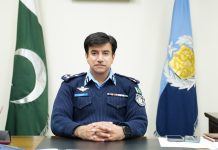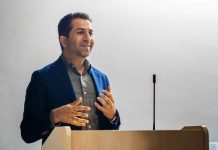By Minahil Makhdoom
ISLAMABAD: The renowned historian Dr Zawwar Hussain Zaidi on Tuesday was remembered across the country with great respect and honour on his 11th death anniversary for his multifaceted contribution.
He was paid rich tributes for his selfless services that included publication of Jinnah Papers series –a documentary record of the Quaid e Azam Muhammad Ali Jinnah’s letters, life, and achievements associated with the Pakistan Movement.
The intellectual community, academicians and researchers residing in Islamabad, Lahore, Karachi and other parts of the country highlighted Dr Zaid’s meritorious services for preserving history of a nation struggling for its inception, Dr Zaidi was the most dedicated, hardworking personality who had sacrificed his personal life for the cause of his country and for the founder the great Quaid e Azam Muhammad Ali Jinnah.
Every year a commemoration ceremony is arranged by the department of Quaid e Azam Wing,Government of Pakistan to pay tributes to his towering personality as the editor in chief of Jinnah Papers Collection —a big contribution to the nation and source consisted of first hand information and material for the future generation in and around the world.
Unfortunately this year due to corona virus pandemic and social distancing he is being remembered at homes on social media by the literary circles.
Dr Zawwar Zaidi was also blessed to receive thanking remarks for publishing Jinnah Papers in a letter of acknowledgment by Mrs Dina Wadia, daughter of the Quaid e Azam which reads,“To Zaidi, thank you for keeping my father’s memory alive, affectionately, Dina†.
Dr Zaidi, a prominent figure of the Pakistan Movement, was born in Badayun in 1928. He studied at Aligarh Muslim University and did his M.A and LLB there. He was the author of 20 books. 13 of these are in English, 6 in Urdu, and one in Persian.
Later he was appointed head of the history department in FC Collage, Lahore. He also taught at the Punjab University and School of Oriental and African Studies (SOAS), London for about 42 years. Then he worked for the UNESCO’S International Council of Archives for about 10 years.
In 1982 he came to Pakistan from London in order to compile the Muslim League Papers and the Quaid-e-Azam Papers, which were lying in the National Archives department at that time. In 1991 he took premature retirement from SOAS and started the herculean task of editing the Jinnah Papers.
The work included organizing the papers and editing 113 sacks of records, and 46 tin trunks and some 70,000 copies of Muslim League publications. So with the help of Dr Zaidi’s single minded perseverance and tenacity, the Jinnah Papers work was completed successfully.
Dr Zaidi along with his wife Parveen Zaidi, a very kind and compassionate lady, had developed special kind of passion for digging out historical and old documents and then preserving and restoring them after taking special training for it. In one of his books, he wrote that he broke into tears when Quaid-Azam’s daughter Dina told him: “My father would be very grateful to you†. He was also Chairman of the Quaid-e-Azam Academy, Karachi. He was awarded Sitara-e-Imtiaz in 1994 for his valuable services to work on the life and achievements of M. A. Jinnah during 1940-1947. Dr Zaidi was aware of his failing health condition. He wanted to see the Jinnah papers formal inauguration.
It was in 1995 when he formally launched the first volume of Jinnah Papers in Islamabad. Nearly 16 volumes of Jinnah Papers have so far been launched. During his life time he did not take rest and continued collecting material for the publication of historical papers from various libraries and departments. He even had collected documents from London Archives and British library.
His wife Parveen Zaidi herself an archivist talking to this scribe sadly recalled sordid incident of December 31,2008, when he was suddenly given shock of leaving his residence in Islamabad. He being a man of pride and integrity could not take this shock on heart as he was a chronic heart patient already. Just after one year of this incident he died on March 31, 2009 in Lahore at the age of 81. His demise was a great loss for the nation.



